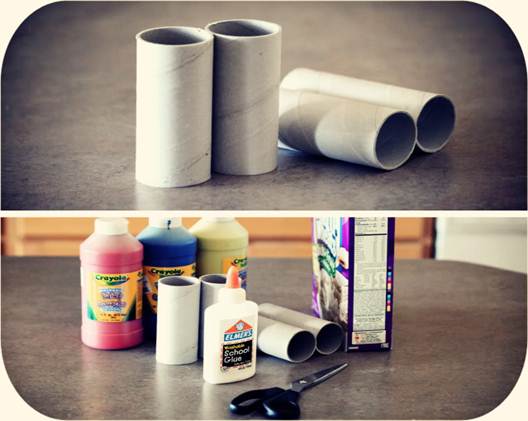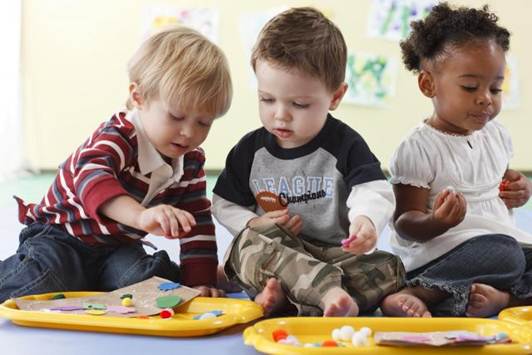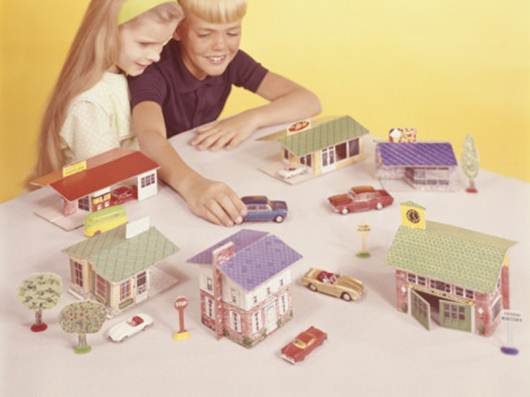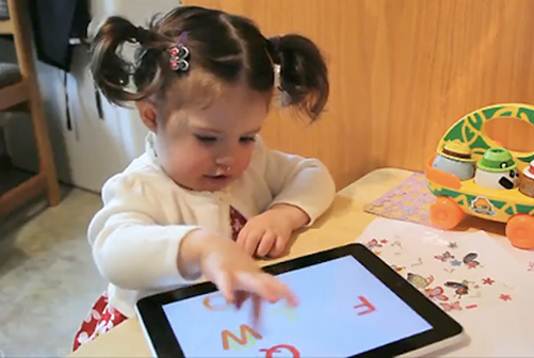He’s horsing around? There’s more to it than
meets the eye. Three experts identify the myths and facts.
Our experts
Dr Richard C. Woolfson is a Britisch child
psychologist who writes the Age by Stage column in Young Parents
Rupal Arora is the head of school at
Odyssey - The Global Preschool.
Chitra Venkatesh is a programme specialit
at Odyssey – The Global Preschool.
Tan Men Wei is the owner of Star Learners
Group, which runs seven childcare centers.
Pieces of paper, boxes and toilet rolls are just as useful
as educational toys.
Answer: True

Pieces
of paper, boxes and toilet rolls are just as useful as educational toys.
Chitra:
Instructive toys can sometimes be limiting because they come with rules and
instructions. Everyday materials like papers, pencils, boxes and toilet rolls
can be used in new and unexpected ways because there are no rules limiting
their use. Plus, adults are more open to the idea of these materials being cut,
pounded, squashed and generally demolished.
This gives children a lot of freedom and
room to make mistakes. Toilet rolls can become a simple pair of binoculars. A
piece of paper can become the start of a detailed journal with scribbles,
drawings and words. A long piece of wood can be a horse. The possibilities are
limited only by imagination.
It’s okay if my tot prefers to play alone.
Answer: Maybe

Children
who are two or three are naturally selfish and don’t want to play with others.
Weng Wei:
Children who are two or three are naturally selfish and don’t want to play with
others. Many parents say they send their two-year-olds to school for
socialization, but nothing can be further from the truth. As children grow
older, they will want to have friends.
Chitra:
anyone who can spark off an interaction is a playmate. It could be a parent or
teacher. If your child is mostly playing alone, it can be limiting. Playmates
enrich the experience, and bring different and conflicting ideas that need to
be negotiated. This exercises skills, from IQ and EQ.
Girls should play with dolls and boys with cars.
Answer: False

All
children need to engage in pretend-play and use their imagination.
Chitra: All
children need to engage in pretend-play and use their imagination. In order to
do that, we have to provide a good mix of toys, including dress-up costumes,
dolls, toy cars and trucks. To a child, it’s all the same. A toy is a toy,
whether it’s a doll or a truck. A costume is a costume, and it’s fun to play
dress-up.
Parents should not try to impose gender
roles on children. Eventually, your child has to grow up and function in a
world where gender roles are becoming blurred. This is the age of stay-at-home
dads and mums who work as police officers.
Dr Woolfson:
There’s no evidence that opposite-gender play in childhood affects a child’s
identity as he grow up. Anyway, the more you tell a child not to play with
something, the more he will want to.
My child is playing in a random manner. He’s wasting time.
Answer: False

Play
is serious business as far as your child is concerned.
Dr Woolfson:
Play is serious business as far as your child is concerned. He learns about the
world, grasps new concepts, improves his coordination, and even picks up
language and social skills through play. It’s never a waste of time because
he’s always learning something.
Rupal: As
long as he’s enjoying the activity, engaging with objects and materials or
using his imagination, his play is purposeful.
Who needs toys when my kid can play with the latest
gadgets instead?
Answer: False

When
the child is too sued to these features in toys, she won't be able to focus
well on, say, reading a book.
Meng Wei:
Electronic gadgets like the iPad and PSP over-stimulate children with
fast-moving images, bright colors and loud sound effects. When the child is too
sued to these features in toys, he won't be able to focus well on, say, reading
a book.
It’s not coincidence that with the advent
of TC and computers, the rate of children with attention deficit disorders has
been on the rise.
Rupal:
Children under the age of three years should be kept away from these gadgets.
For older ones, they should not be playing with these for more than 20 to 30
minutes each time.
Chitra: The
American Academy of Pediatrics recommends limiting “screen time” (which
includes TC and computers) to two hours of quality programmes a day for
preschoolers.
The adage “everything in moderation” holds
true. All gadgets should be used under adult supervision, so that the content
and duration of use can be monitored. Don’t let them play with gadgets right
before bedtime. Studies have shown that affects sleep patterns.